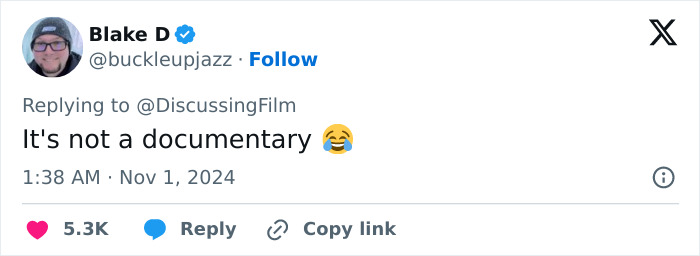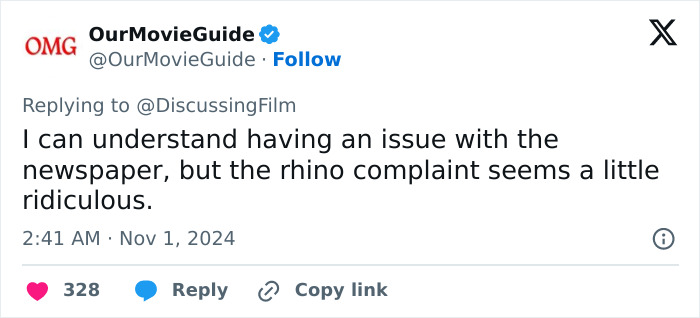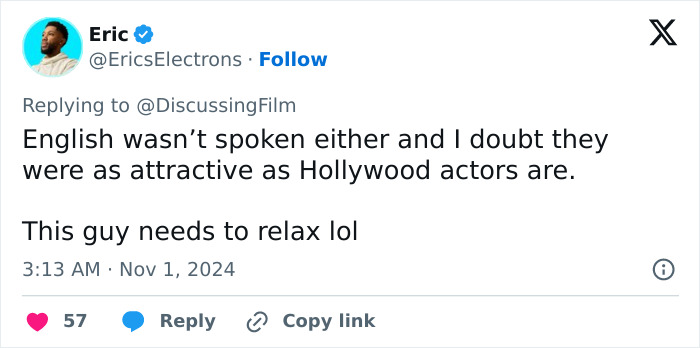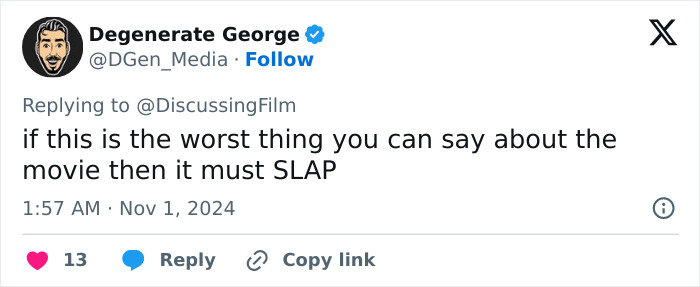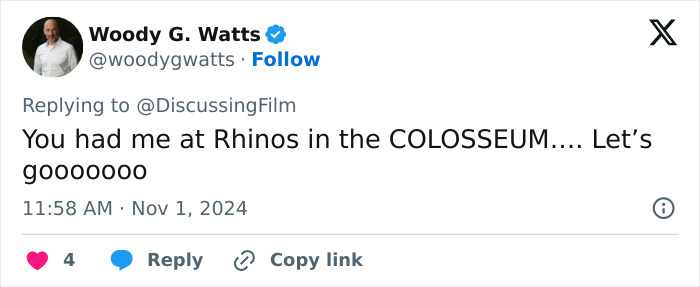Gladiator II hasn’t been released yet, but its trailer is already giving historians much to talk about. Dr. Shadi Bartsch, a classics professor who has written several books on ancient Rome, bluntly described the Ridley Scott-directed film as “total Hollywood bullsh*t.”
The sequel to the Oscar-winning epic is set two decades after the first film and stars Paul Mescal as Lucius, the grandson of Rome’s former emperor Marcus Aurelius and the son of Lucilla and Maximus.
Lucius is forced to fight as a gladiator after Roman soldiers led by General Marcus Acacius (Pedro Pascal) invade Numidia. The former heir to the Roman Empire receives help from Macrinus (Denzel Washington), a former slave who mentors Lucius and keeps a stable of gladiators.
A historian criticized Ridley Scott’s Gladiator II as full of anachronisms, pointing out several events that did not occur in ancient Rome
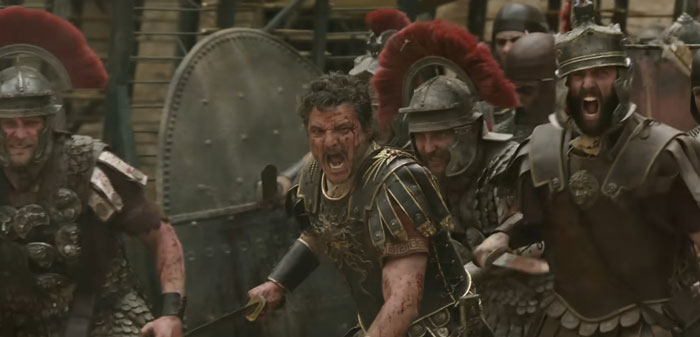
Image credits: Paramount Pictures
In one scene from the film’s first trailer, the Colosseum is shown flooded and filled with sharks. According to Bartsch, a University of Chicago professor with degrees from Princeton, Harvard, and UC Berkeley, this portrayal is historically inaccurate.
“I don’t think Romans knew what a shark was,” Bartsch told The Hollywood Reporter, noting that ancient Romans did fill the arena with water for naval battles.
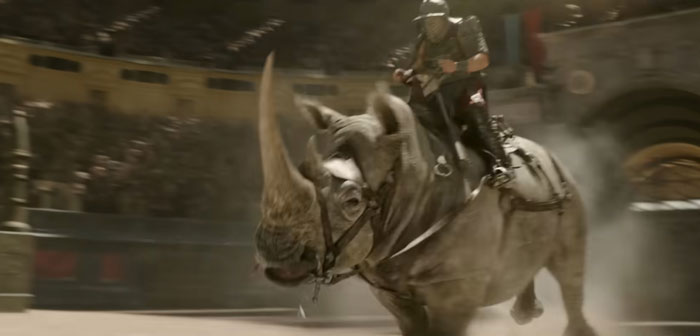
A separate scene shows rhinos charging into the Colosseum, which is partially inaccurate.
Martial, a Roman poet born in Hispania (modern Spain), “wrote a poem in 80 A.D. about a rhinoceros tossing a bull up to the sky,” Bartsch explained.
However, while the rhinoceros in the film has two horns, the one in Martial’s poem has a single horn. Additionally, unlike in the film, there is no evidence that gladiators actually rode such animals.
Though the Romans did fill the Colosseum with water for naval battles, they did not throw sharks in, as depicted in the movie trailer
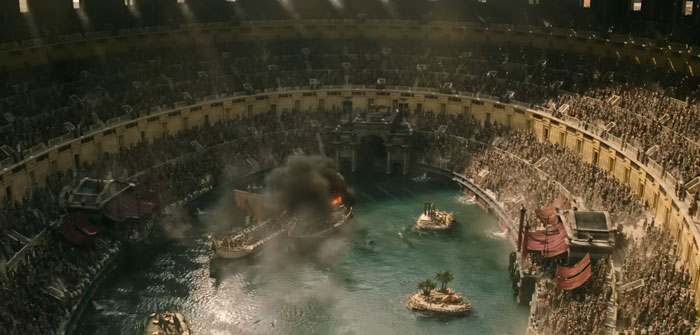
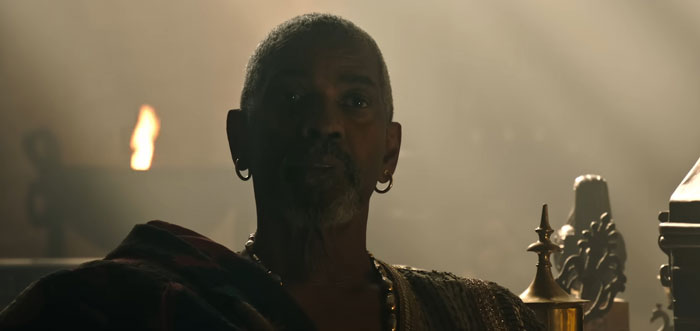
Bartsch pointed out another anachronistic scene, where a Roman noble drinks tea in a café while reading a newspaper—1,200 years before the invention of the printing press.
“They did have daily news — Acta Diurna — but it was carved and placed at certain locations,” the author and historian described.
“You had to go to it; you couldn’t hold it at a cafe. Also, they didn’t have cafes!”
The Acta Diurna (also called Acta Populi, or Acta Publica), said to date from before 59 B.C.E., recorded official business and matters of public interest, serving as a type of daily gazette, as per Britannica. The term Acta, when used by itself, generally designated an emperor’s official enactments.
Contrary to what is depicted in the film, the Romans did not have cafés
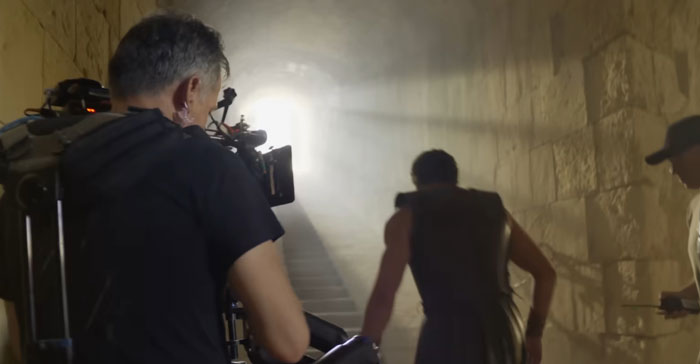
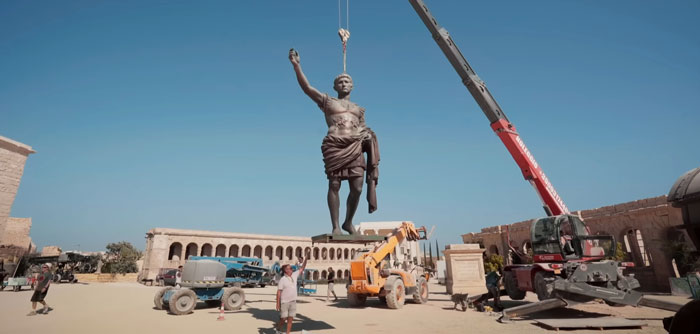
The film is scheduled for release on November 15 in the UK and November 22 in the US
Ridley Scott was previously questioned by historians for the depiction of Napoleon in his 2023 film about the French military leader and emperor. One critic, Patrice Gueniffey, a Napoleon biographer, attacked the film in Le Point magazine as a “very anti-French and very pro-British” rewrite of history.
Responding to the criticism from French historians, the British director declared that “the French don’t even like themselves.”
In an interview with The Times, the 86-year-old added, “When I have issues with historians, I ask: ‘Excuse me, mate, were you there? No? Well, shut the f*** up then.'”
Bored Panda has contacted Ridley Scott’s representatives for comment.
People didn’t seem to mind that not every scene in the film was historically accurate, saying, “It’s not a documentary”
